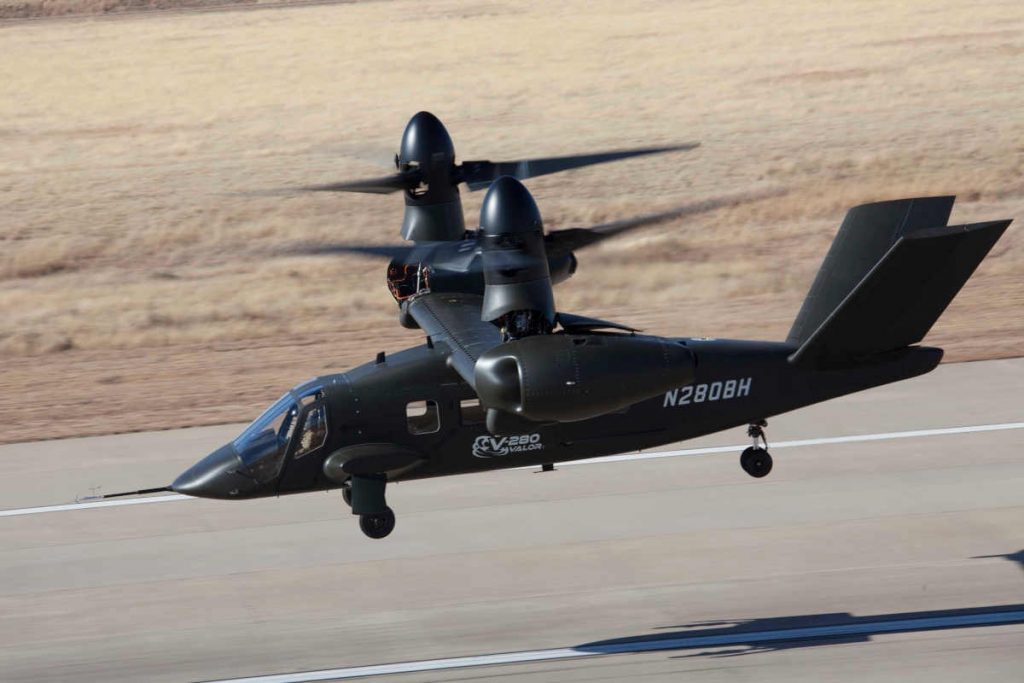
Features
Bell V-280 Valor among Collier Trophy nominees
March 4, 2021 By Helicopters Staff
 The Bell V-280 Valor hits a performance milestone of 50-degree banked turns at 200 knots indicated airspeed. (Photo: Bell)
The Bell V-280 Valor hits a performance milestone of 50-degree banked turns at 200 knots indicated airspeed. (Photo: Bell) The National Aeronautic Association on Feb. 24 announced seven aviation and space achievements that will compete for the 2020 Collier Trophy. Commissioned in 1910 by aviator Robert J. Collier, the trophy is seen as a technology benchmark of American aerospace achievement. The Collier Trophy selection committee will meet virtually in June to determine the winner, which could be the Bell V-280 Valor.
Past winners include Orville Wright, Howard Hughes, Glenn Curtiss, William Lear, Clarence “Kelly” Johnson, the crews of Apollo 11 and Apollo 8, and the Mercury 7. Projects and programs that have been the recipient of the Collier include the B-52, Voyager Aircraft Team, Gulfstream V, F-22, and the International Space Station.
The five most recent recipients of the Collier Trophy include the teams behind the USAF Boeing X-37B; Automatic Ground Collision Avoidance System; Cirrus Aircraft Vision Jet; Blue Origin New Shepard; and NASA/JPL Dawn Mission.
The finalists competing for the 2020 Collier Trophy are, include: Bell V-280 Valor; Boeing Confident Travel Initiative; Garmin Autoland; Reliable Robotics Remotely Operated Aircraft System (ROAS); SpaceX Falcon 9 and Dragon 2; U.S. Department of the Air Force Green Propellant Infusion Mission Team; and Yates Electrospace’s Silent Arrow.
The Bell V-280 Valor achieved its namesake optimal cruise speed of 280 knots on January 23, 2019, at the company’s Flight Research Center in Arlington, TX. This achievement came after a full year’s worth of testing and more than 85 hours of flight time, as Bell continued too expand the aircraft’s flight envelope toward 300 knots.
Reliable Robotics’ ROAS system last year performed the automated landing of a Cessna 208 Caravan, nine months after its first remote-piloted flight of an unmanned Cessna 172 Skyhawk. These milestones, explains Reliable Robotics, demonstrated an approach to autonomy that is universal and can be ported to other aircraft types.
Garmin Autoland is an autonomous safety-enhancing technology, described by the company as the world’s first certified system with the ability to activate during an emergency situation to control and land an aircraft without human intervention. Once activated, Garmin explains the system immediately calculates a flight path to the most suitable airport and runway, while avoiding terrain and adverse weather, initiates an approach and automatically lands the aircraft.